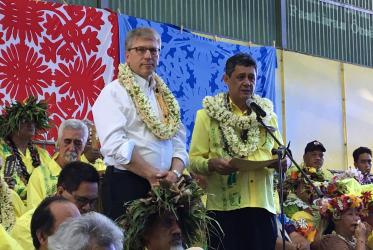Displaying 101 - 120 of 194
We are called to work on a peace built on trust, not power
04 August 2017
WCC general secretary visits the Pacific region
31 July 2017
Ban nuclear weapons by law next year, says historic UN vote
28 October 2016
Calls grow for nuclear weapons ban
13 October 2016
Prayer and hope mark anniversary of atomic bombings
05 August 2016
Peacemakers call for new European vision
07 April 2016






